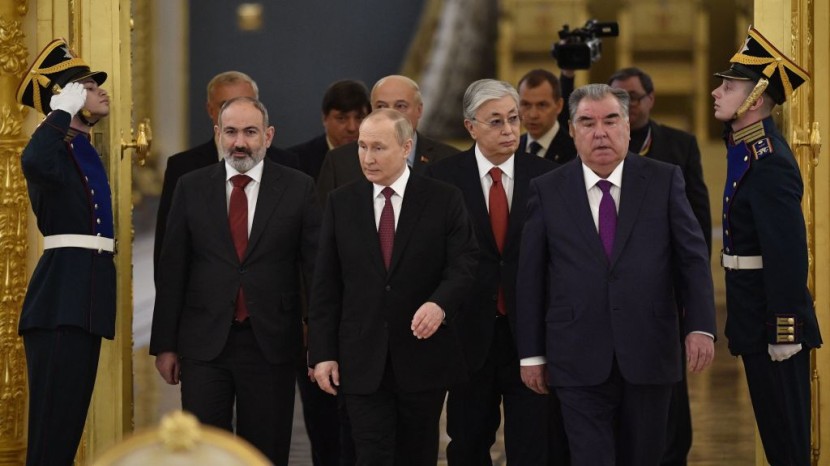
Armenia's PM requested the Collective Security Treaty Organization (CSTO) allies to help as tensions with Baku threaten its borders. Yerevan said Azerbaijan is embarking on aggressive gestures in its territory.
Tension Escalates at Armenian Border
After provocations along the border with Azerbaijan flared up, Prime Minister Nikol Pashinyan convened an emergency security council meeting early on Tuesday to add extra defensive measures, reported RT.
In response to the aggressive behavior on the Republic of Armenia's territory, it was finally agreed to officially draw attention to the Russian Federation, the CSTO, as well as the UN Security Council to impose the terms of the Treaty of Friendship, Cooperation, and Mutual Assistance.
Following the national security meeting, the government in Yerevan made an announcement, note Hi India.
Armenia has not yet submitted formal appeals, and it is still unclear what kind of assistance from CSTO allies it seeks. A mutual protection pact comparable to the US-led NATO bloc comprised of six former Soviet republics, such as Russia, Armenia, Belarus, Kazakhstan, Kyrgyzstan, and Tajikistan, is recognized as the CSTO.
Moscow and Yerevan also have a separate Treaty of Friendship, Cooperation, and Mutual Assistance, which applauded its commemoration on August 29.
Armenia PM Pashinyan had previous telephone calls about the "provoking, aggressive moves of the Azerbaijani military against the sovereign territory of Armenia" with Russian President Vladimir Putin and French President Emmanuel Macron.
The scenario along the boundaries stayed extremely tense as of 4:00 am on Tuesday, as indicated by the Armenian Defense Ministry, with continuing artillery and mortar fire from Baku as well as drone strikes supposedly attacking infrastructure, which is both military and civilian, citing the Good Word News.
Baku asserted it was Yerevan, but the Baku defense military contended that saboteurs mined roads and infrastructure on the Azeri side of the border over the weekend, resulting in an undisclosed number of casualties.
Baku also dismissed as "falsified" reports of Azerbaijan's "military invasion" of territory, asserting it was only reacting to such provocative actions. Both countries have been at odds since their separation from the Soviet Union, primarily over Nagorno Karabakh, located inside Azerbaijan but with an ethnic majority Armenian population.
Armenians took possession of the enclave and the regions linking it to Armenia proper in the 1990s. Baku launched a plan to recapture the region in September 2020, assisted by Turkish-supplied drones.
A Moscow-mediated ceasefire left half of Nagorno-Karabakh populated by Armenians and kept safe by Russian peacekeepers, whereas all other regions traditionally dominated by Yerevan were returned to Azerbaijan.
Clashes on the Armenia and Azerbaijani border
Inhabitants of Vardenis, Jermuk, Goris, and Tatev, cities inside Armenia proper, reported artillery and drone explosions just after midnight last Tuesday. Armenians have faulted the attack on their neighbor, Azerbaijan, mentioned by Pressbee.
According to the Armenian Defense Ministry, Azerbaijan's army used heavy artillery and drones.
A Bayraktar drone produced in Turkey was supposedly shot down over Vardenis, located in northern Armenia and not adjacent to the disputed area of Nagorno Karabakh. Armenian military units are replying sufficiently.
The Armenia PM called for CSTO allies to help resolve the problem with Baku to fix the tensions and hostilities.








